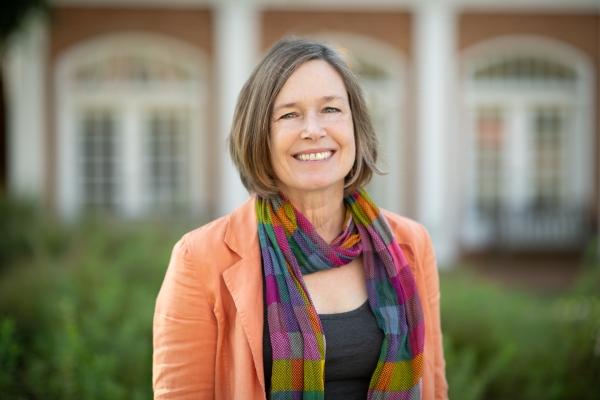Robin LeBlanc to Present Nobel Prize Symposium Talk The W&L professor of politics will present on this year’s Nobel Peace Prize winner, Narges Mohammadi, on March 8 in Leyburn 128.
Robin LeBlanc, professor of politics, will hold a Nobel Prize Symposium discussion on imprisoned Iranian human rights advocate Narges Mohammadi, winner of the 2023 Nobel Peace Prize.
LeBlanc’s talk will be held at 12:15 p.m. Friday, March 8, in room 128 of the Harte Center, located in Leyburn Library. The discussion is free and open to the public, and refreshments will be provided.
“Mohammadi is a compelling activist for many reasons,” said LeBlanc. “But as a scholar of gender and politics, I am particularly interested in how her work highlights the sacrifices that women are willing to make for revolutionary change in their society.”
Mohammadi spent more than 20 years fighting for women’s rights in her home country of Iran, making her a symbol of freedom and the standard-bearer in the struggle against the Iranian theocracy.
In 2003, Mohammadi joined the Defenders of Human Rights Center, an organization founded by five prominent Iranian lawyers, including 2003 Nobel Peace Prize Laureate Shirin Ebadi. Since its founding in 2001, the organization has played an active role in defending the rights of women, political prisoners and minorities in Iran.
Mohammadi personally helped imprisoned activists, led a campaign against the death penalty and criticized the regime’s use of torture and sexualized violence. In the process, she was arrested 13 times and sentenced to 31 years in prison and 154 lashes. She received the 2023 Nobel Peace Prize while serving her sentence in Tehran’s notorious Evin Prison. From captivity, she continues to stand at the forefront of major protests against the Iranian regime and has served as a voice for those who are also imprisoned. In January 2023, Mohammadi published the book “White Torture: Interviews with Iranian Women Prisoners,” sharing the stories of 13 women who have survived solitary confinement and physical and psychological torture.
Mohammadi was born in Zanjan, Iran, in 1972 and later attended Qazvin International University (now Imam Khomeini International University) where she earned a degree in physics. She became an activist for women’s rights, writing several articles for the student newspaper that eventually led to her first arrests. In 1999, she married fellow pro-reform journalist Taghi Rahmani, who himself served 14 years in prison before moving to France in 2012. Mohammadi remained in Iran to continue her human rights work. The couple have twin children.
Learn more about all of the 2023 Nobel Prize winners here.
 Robin LeBlanc, professor of politics
Robin LeBlanc, professor of politics
You must be logged in to post a comment.